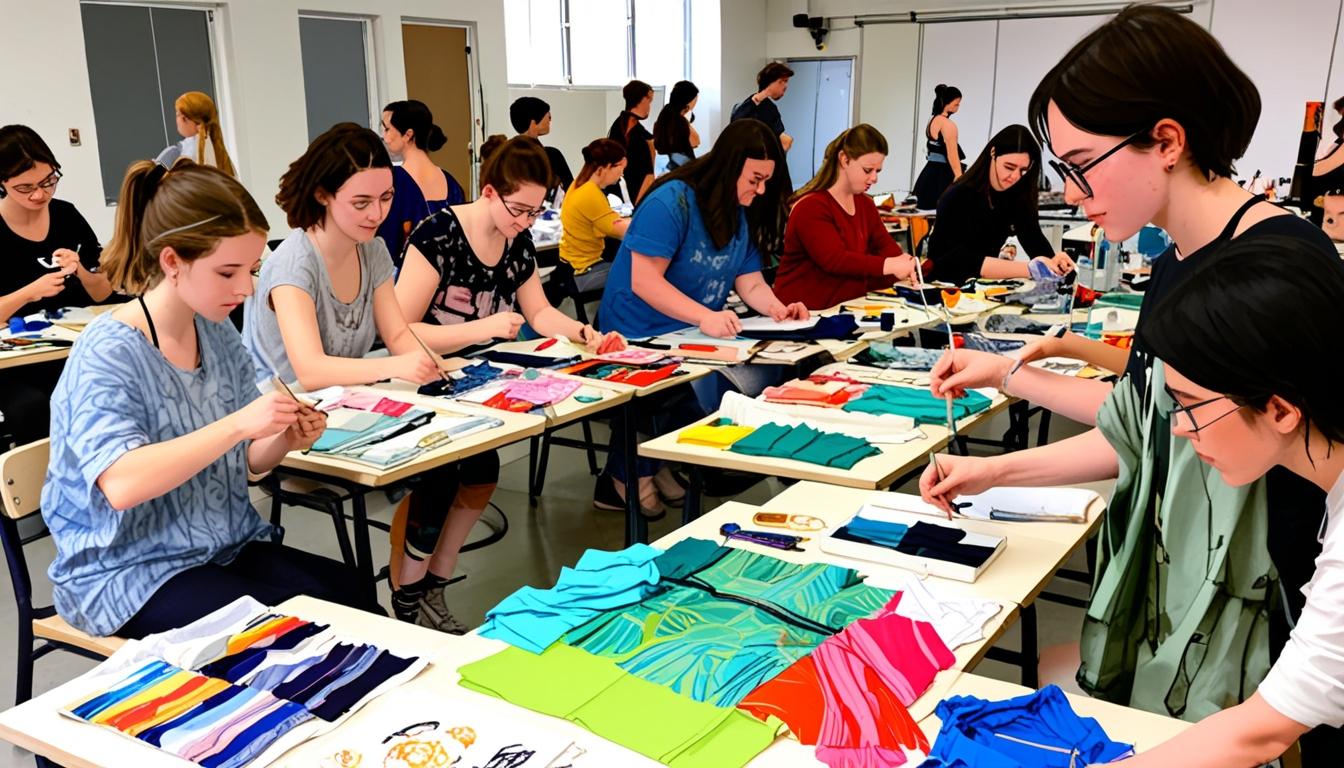A partnership between Humana People to People Romania and UNArte aims to empower future designers with innovative tools for sustainable clothing practices, addressing the textile industry’s significant environmental impact.
The partnership between Humana People to People Romania and UNArte, the National University of Arts in Bucharest, marks a significant move towards promoting sustainable fashion education. The initiative, which commenced earlier this year with an effort to decorate a Humana store’s windows with designs from students, will be further developed in March through two interactive workshops focused on sustainable fashion, hosted at the Faculty of Decorative Arts and Design at UNArte.
According to data from the European Environment Agency, the textile industry has emerged as one of the most polluting sectors globally, with over 95% of textiles from Romanian households ending up in landfills or incinerated, due to a lack of effective collection and reuse systems. On a larger scale, the textile industry accounts for approximately 10% of annual greenhouse gas emissions, a figure that exceeds that of both air and maritime transport combined.
M?d?lina Corciu, PR and CSR director at Humana People to People Romania, highlighted the importance of empowering the next generation of designers. “Generation Z is more aware than any other generation of the impact we have on the environment, and future designers have the power to change the fashion industry from within. I believe young people will be concerned about creating clothes that are not only aesthetic but also ethical,” she stated, emphasizing that the partnership aims to equip students with the tools to use reused materials innovatively and inspire more responsible consumer behavior.
The upcoming workshops will tackle critical issues regarding the textile industry’s environmental footprint, offering practical solutions for responsible clothing design. Participants will engage in interactive sessions that focus on creative recycling, sustainable material selection, and techniques for adjusting garments to prolong their usability.
In a subsequent phase of the project, students are set to create UpCycling clothing collections by repurposing selected items from Humana stores. These unique designs will then be showcased in various Humana outlets and sustainability-focused events, further highlighting the potential for innovative fashion solutions.
Dr. Antoaneta Tica, a university lecturer and coordinator of the UNArte students involved in the project, expressed the necessity of sustainability in modern fashion design. “For young designers, sustainability is no longer just an option but a necessity. This partnership offers them the opportunity to understand the real impact of fashion on the environment and to find innovative solutions for the future,” she remarked, underscoring the practical experience that collaboration with Humana provides.
This partnership forms part of a more extensive strategy by Humana Romania aimed at promoting education and awareness regarding sustainability. Last year, for example, the organization launched an educational manual titled ‘We Love Sustainability in Fashion’ in collaboration with the New Horizons Foundation, targeting students and educators across the country. Humana’s Repair project further supports sustainability by establishing a network of local tailors to encourage clothing reuse and adjustment.
Through these initiatives, Humana Romania and UNArte aim to contribute to the development of a more responsible fashion industry, equipping future fashion creators with essential resources and knowledge that encourage sustainable practices throughout their educational experiences.
Source: Noah Wire Services




